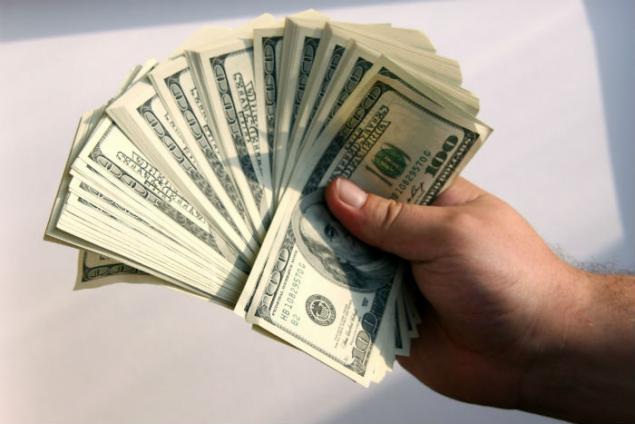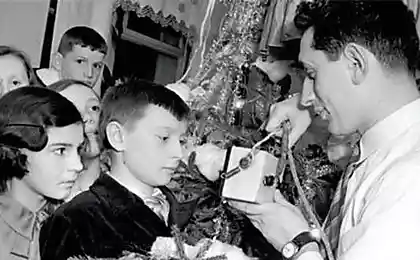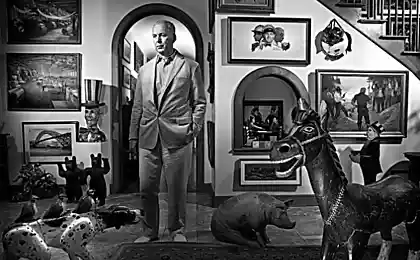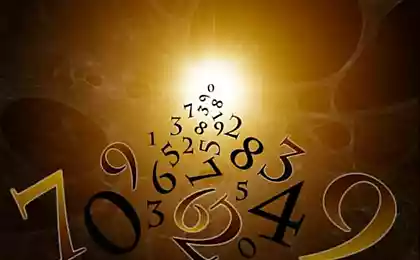812
This Harvard professor each year sells to students 20 bucks ... You'd be surprised to know why he does it.
Who among us has not dreamed at least once, like a fairy tale: you wake up - and you have a million dollars. Day by day people are trying to get lucky in the lottery, break a big jackpot win a large sum in a casino. That's only necessary to remember always that easy money does not happen. And if you are lucky and suddenly you become the owner of a large sum in a Swiss bank, you need to clearly understand what responsibility it bears for them. The big money - big concern. You'll be surprised, but we can say even more: a large amount - big losses.
Today want to share with you a very instructive story. Everyone knows that the graduates of Harvard (the most popular US institution of higher education) leave the best financiers, bankers and directors of large corporations and companies. But interestingly, what methods are used in teaching students.
It's about receiving one of the professors at Harvard Max Bazermana. Each year, the teacher manages by simple manipulation exchange bill par value of $ 20 to a standing position. His record - to sell $ 20 for $ 204! How does he do it? In the first lesson, it shows the very bill that wants to exchange the entire class and said that twenty get someone who will give for it the most money. However, there is one condition: the student who will be right behind the winner, will be required to pay full professor the amount offered for that lot.

look at an example to make it clearer. For example, two of the highest bid - $ 15 and $ 16. The winner receives $ 20 in exchange for $ 16, and the person who offered $ 15, so be it, will have to pay this amount professor. Rules are rules.
Usually, bidding starts with the rate of one dollar and quickly reach elevations $ 12- $ 16. At this point, as a rule, the majority of students drop out of the auction, and there are only two people with the highest offers. Further bids slow approach to the figure of $ 20. A defeat at this stage certainly does not want to, because not only the loser gets nothing, so also will have to pay a nominal professor bide his last.
Once the auction passes a boundary in $ 21, begins the most interesting. On the face of many puzzling: Harvard students, supposedly so smart, willing to pay more than the cost of the auction itself. However, as practice shows, the auction continues and quickly comes to $ 50, then a hundred, up to $ 204 (for the record Bazermana entire teaching career).

The question arises: why people each year are willing to pay twenty dollars a lot more money, and that it tries to show the professor? In humans, especially in business, there is a weak spot - the so-called fear of losing. Numerous experiments show that anyone is behaving irrationally and even inadequate, when it begins to lose money.
Initially, all students feel that they have the opportunity to receive free money. They are not fools and will not pay more than twenty dollars for a twenty-dollar bill. But once the bidding reach $ 12- $ 16, everyone who stayed in the game, aware that he could face a serious loss. Therefore, students begin to raise rates, but not before going to do that. So the auction comes to $ 21. At this stage, all participants are losing money. For example, in the end there are only two players. Of these, some will lose all dollar, and someone twenty. To minimize losses, everyone tries to be a winner. Unfortunately, this race leads only to the fact that both students are losing more and more money, while the size of the loss does not reach this amount, that further nowhere.
The moral of the story is. Any desire for the "left" money turns losses. Most interesting is that there are many examples (especially in the stock market), which show the phenomenon Bazermana in action. When a person begins to lose money, he panicked, behaving illogically. Rather than fix the loss, he hopes to be able to win back the loss. But in the end it loses more and more money.
Did you like this fascinating story? Share this article with your friends - let them think about it carefully.
via ofigenno ru
Today want to share with you a very instructive story. Everyone knows that the graduates of Harvard (the most popular US institution of higher education) leave the best financiers, bankers and directors of large corporations and companies. But interestingly, what methods are used in teaching students.
It's about receiving one of the professors at Harvard Max Bazermana. Each year, the teacher manages by simple manipulation exchange bill par value of $ 20 to a standing position. His record - to sell $ 20 for $ 204! How does he do it? In the first lesson, it shows the very bill that wants to exchange the entire class and said that twenty get someone who will give for it the most money. However, there is one condition: the student who will be right behind the winner, will be required to pay full professor the amount offered for that lot.

look at an example to make it clearer. For example, two of the highest bid - $ 15 and $ 16. The winner receives $ 20 in exchange for $ 16, and the person who offered $ 15, so be it, will have to pay this amount professor. Rules are rules.
Usually, bidding starts with the rate of one dollar and quickly reach elevations $ 12- $ 16. At this point, as a rule, the majority of students drop out of the auction, and there are only two people with the highest offers. Further bids slow approach to the figure of $ 20. A defeat at this stage certainly does not want to, because not only the loser gets nothing, so also will have to pay a nominal professor bide his last.
Once the auction passes a boundary in $ 21, begins the most interesting. On the face of many puzzling: Harvard students, supposedly so smart, willing to pay more than the cost of the auction itself. However, as practice shows, the auction continues and quickly comes to $ 50, then a hundred, up to $ 204 (for the record Bazermana entire teaching career).

The question arises: why people each year are willing to pay twenty dollars a lot more money, and that it tries to show the professor? In humans, especially in business, there is a weak spot - the so-called fear of losing. Numerous experiments show that anyone is behaving irrationally and even inadequate, when it begins to lose money.
Initially, all students feel that they have the opportunity to receive free money. They are not fools and will not pay more than twenty dollars for a twenty-dollar bill. But once the bidding reach $ 12- $ 16, everyone who stayed in the game, aware that he could face a serious loss. Therefore, students begin to raise rates, but not before going to do that. So the auction comes to $ 21. At this stage, all participants are losing money. For example, in the end there are only two players. Of these, some will lose all dollar, and someone twenty. To minimize losses, everyone tries to be a winner. Unfortunately, this race leads only to the fact that both students are losing more and more money, while the size of the loss does not reach this amount, that further nowhere.
The moral of the story is. Any desire for the "left" money turns losses. Most interesting is that there are many examples (especially in the stock market), which show the phenomenon Bazermana in action. When a person begins to lose money, he panicked, behaving illogically. Rather than fix the loss, he hopes to be able to win back the loss. But in the end it loses more and more money.
Did you like this fascinating story? Share this article with your friends - let them think about it carefully.
via ofigenno ru
18 evidence that you'll never be lonely. For you to the end of the world!
Photographer captures the dreams and portraits of people from 1 to 100 years. The unique images!






















